日本语初级 笔记
标准日本语初级超详细笔记word版
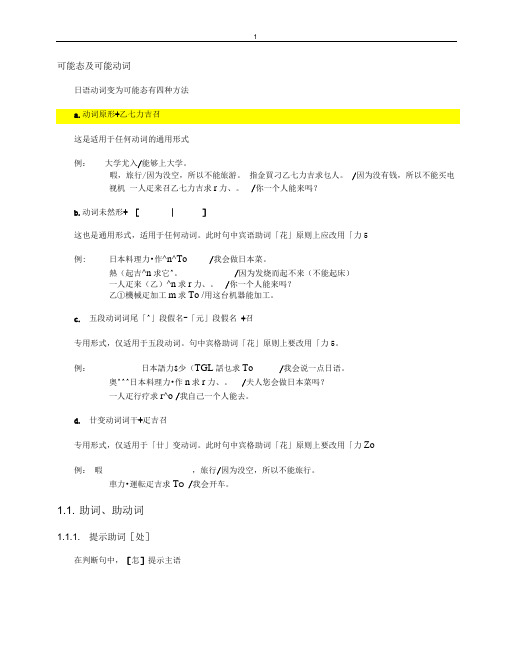
可能态及可能动词日语动词变为可能态有四种方法这是适用于任何动词的通用形式例:大学尤入/能够上大学。
暇,旅行/因为没空,所以不能旅游。
指金買刁乙七力吉求乜人。
/因为没有钱,所以不能买电视机一人疋来召乙七力吉求r力、。
/你一个人能来吗?b.动词未然形+ [| ]这也是通用形式,适用于任何动词。
此时句中宾语助词「花」原则上应改用「力5日本料理力•作^n^To /我会做日本菜。
例:熱(起吉^n求它^。
/因为发烧而起不来(不能起床)一人疋来(乙)^n求r力、。
/你一个人能来吗?乙①機械疋加工m求To /用这台机器能加工。
c.五段动词词尾「^」段假名-「元」段假名+召专用形式,仅适用于五段动词。
句中宾格助词「花」原则上要改用「力5。
例:日本語力$少(TGL話乜求To /我会说一点日语。
奥^^^日本料理力•作n求r力、。
/夫人您会做日本菜吗?一人疋行疗求r^o /我自己一个人能去。
d.廿变动词词干+疋吉召专用形式,仅适用于「廿」变动词。
此时句中宾格助词「花」原则上要改用「力Zo例:暇,旅行/因为没空,所以不能旅行。
車力•運転疋吉求T O /我会开车。
1.1. 助词、助动词1.1.1. 提示助词[处]在判断句中,[怎]提示主语例:1.12 提示助词[哲][哲]表示兼提,有“也”的意思 例: 土曜日哲日曜日哲休/ 一天之中,朋友竟来了五次之多。
(之多)/房间里一个人也没有。
(之少)1.1.3.1.主格助词[力*][力* ]只在疑问词做主语的问句及其答句中表示主语 S 心/王吉人①左丁力、。
---> 5心/王吉人①左丁1.1.3.2.格助词[步]格助词[力*]接在体言之后,除了可以作为主格助词、表示主语之外,还常常用在描写句中,表示 形容词、形容动词所描述的对象,故又称“对象格”。
例: 李^^^0本語力•上手/听说小李日语挺棒 1.1.3.3.接续助词[力*]接续助词[力*]接在各类活用词终止形 (简体、敬体均可)后,起两种语法作用,一种表示逆接(转 折)关系,意为“虽然…但是…”,另一种表示顺接关系,起有机连接前后句的作用。
《新版标准日本语初级》TXT课文+笔记。第22课
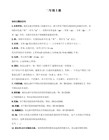
6、小句 けど 小句 【转折】 【铺垫】
“けど”连接两个句子,表示转折,起着把两个句子归纳成一个句子的作用,用于口语。
昨日の試験、どうだった?(昨天的考试怎么样啊?)
――ちょっと 難しかったけど、‘まあまあ できたよ(有点难,不过都做出来了。)
另外,“けど”还有不表示转折而表示铺垫的用法。
C
甲:この ネクタイ 派手?
乙:ううん、全然 派手じゃうん、知ってる。 3493-3945だよ。
语法解释:
1、敬体形和简体形
在口语里,日语的谓语形式根据说话人和听话人之间的上下关系、亲疏关系的不同而不同。迄今为止学习的“~ます”“~です”是对长辈或关系不太亲密的人使用的形式。这种形式我们称做“敬体形”。与此相反,如对方是自己的同辈或是晚辈,或者关系较密切时则使用“简体形”。“简体形”是不使用“ます”“です”的形式。
来週 送別会を するけど、 都合は どうかな?
(下星期要开个欢送会,你时间方便吗?)
应用课文 友達
一天下午,小野的朋友清水给小野打来电话.
小野:もしもし 小野です。
清水:小野さん? 清水だけど。
小野:ああ、清水君、どうしたの?
清水:最近 大田から 連絡 あった?
小野:太田君から?ううん、ないわよ、どうして?
清水:大田、今度 中国へ転勤だって。
小野:本当に? いつ 行くの?
清水:たしか 来月だよ。
小野:急ね、中国の どこ? 期間は どのぐらい?
清水:北京だって、期間は 四年か 五年かな。
小野:ずいぶん 長いわね。太田君 一人で 行くの?
清水:いや、奥さんも 一緒だよ。
来週 送別会をするけど、都合はどうかな?
《新版标准日本语初级》TXT课文+笔记。第45课

②食べれば食べるほどおいしいです。(越吃越好吃)
③声は高ければ高いほど、元気が出てきます。(声音越大越能打起精神)
*如果是形容词的话有两种接续:“词干+なら+词干+なほど”或者“词干+であれば+词干+なほど”。
例:①静かなら静かなほど勉強にいいです。(越安静越有利于学习)
*接续:简体型或敬体型均可。但要注意形容词词干和名次后要加“だ”,敬体时用“です”
*意义:表示几个相同事项的并列。
例:①李さんは頑張っているし、能力もあるし、いい人ですね。(小李又努力又有能力,是个好人)
②牛丼は手軽だし、うまいし、よく食べます。(牛肉饭又便宜又好吃,我经常吃)
③この辺は交通の便もいいし、家賃も安いし、住みやすい。(这一带交通又方便,房租又便宜,很适合居住)
◆ずっと本を読んでいたので、目が疲れてきました。(一直在看书,眼睛累了。)
◆お母さん、雨が降ってきたよ。(妈妈;并列的叙述几个事项",し前面可以是简体型,也可以是敬体型。另外,"小句1,小句2"的主语が多用も代替..(
◆休みだし、天気もいいし、どこかに出かけませんか。(今天休息,天气也不错,去哪儿玩儿玩儿吧?)
◆少子化が進んで、日本の人口はだんだん減っていくでしょう。(孩子减少现象日益加剧,日本的人口将会越来越少吧。)
◆最近、中国へ旅行に行く日本人が増えてきましたね。(最近,到中国旅行的日本人多起来了。)
2.动+てきました[出现]
除这外句型还有表示某种状态的开始或者出现,不过,只限于前面接动词的非意志型。
《新版标准日本语初级》TXT课文+笔记。第16课
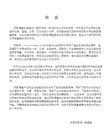
小野:何が いいですか。
李:何でも いいですよ。
小野:じゃあ,お汁粉は どうですか。いい お店を 知って います。 そこに 行きましょう。
李:お汁粉?ぜひ 食べたいです。
〔名〕航空公司
えいぎょうぶ(営業部)
〔名〕营业部
アイティーさんぎょう(IT産業)
〔名〕IT产业,信息技术产业
せいひん(製品)
〔名〕产品
けんちくか(建築家)
〔名〕建筑师
せっけい(設計)
〔名〕设计
デザイン
〔名〕设计(图),(制作)图案
かたち(形)
(动1)改,修改,改正
かたづけます(片づけます)
(动2)收拾,整理
れんしゅうします(練習~)
(动3)练习
けっこんします(結婚~)
(动3)结婚
あんしんします(安心~)
(动3)安心,放心
あかるい(明るい)
(形1)明亮,开朗
ながい(長い)
(形1)长,长久,长远
李:恋愛ですか?
小野:ええ。今年中に 結婚したいです。
李:相手は いますか。
小野:いいえ。まず 恋人が 欲しいですね。
李:どんな 男性が いいですか。
小野:まじめで やさしい 人が いいですね。
李:じゃあ,森さんは どうですか。
小野:ええ?
小野:ちょっと 寒いですね。温かい 物を 食べませんか。
?この公園は静かで広いです。(这个公园安静而宽敞。)
3:名で名[并列]
两个以上的名词并列使用时,用“[名词1]で[名词2]”的形式。
?スミスさんは旅行会社の社員で、営業部の部長です。(史密斯先生是旅行社的职员,营业部部长。)
《新版标准日本语初级》TXT课文+笔记。第12课
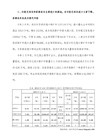
▲语法知识▲:
1. 名1は 名2より 一类形/二类形です
比较“名词1”和“名词2”,“名词1”比“名词2”更具有形容词所表示的性质时使用这个句型。
◎ 李さんは 森さん より 若いです。(小李比森先生年轻。)
◎ 中国は 日本 より 広いです。(中国比日本辽阔。)
◎ 上海は 北京 より にぎやかですか。(上海比北京热闹吗?)
在某个范围内,表示“名词2”最具有形容词的性质时使用这个句型。“名词1”为表示“名词2”所属范围的名词。
◎ スポーツ の 中で サッカー が いちばん おもしろいです。
(在各种体育活动中,足球最有意思。)
◎ 日本料理 の 中で 寿司 が いちばん おいしいです。
(日式饭菜中,寿司最好吃。)
被选择的事物已见于上下文或存在于眼前时,使用“どの ~が”或“どれが”,反之则使用“何が”。
◎ リンゴ と ナシと バナナの 中で どれが いちばん すきですか。
(苹果、梨和香蕉当中你最喜欢什么?)
◎ 果物の 中で 何が いちばん 好きですか。(水果当中你最喜欢什么?)
◆应用课文◆:お酒と お茶
◎ 北京 より 東京 の ほうが 暖かいです。(与北京相比,东京更暖和。)
◎ 大阪 より 東京 の ほうが にぎやかですか。(与大阪相比,东京更热闹吗?)
3、 名1は 名2ほど 一类形く ないです /二类形では ありません
比较“名词1”和“名词2”,“名词1”比“名词2”更不具有形容词的性质时使用这个句型。句尾必须使用否定形式。
◎ 東京の 冬は 北京の 冬 ほど 寒 く ないです。
(东京的冬天没有北京的冬天那么冷。)
◎ 神戸は 大阪 ほど にぎやか では ありません。
《新版标准日本语初级》TXT课文+笔记。第7课
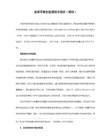
甲:今朝 何を 食べましたか。
乙:何も 食べませんでした。
C
甲:吉田さん、日曜日 何をしますか
乙:テニスか ジョギングをします。
D
甲:いらっしゃいませ。
乙:この ノートと 鉛筆を ください。
语法解释
1、名 を 动
动作的对象用助词“を”表示,这里的“を”读做“お”。
★ 李さんは 毎日 コーヒー を 飲みます。 (小李每天喝咖啡。)
3、名 [场所] で 动
动作的场所用助词“で”表示。需要注意,存在的场所和动作进行的场所在汉语里都用“在”来表示,但在日语里前者为“に”后者为“で”。
★ 李さんは 図書館 で 勉強します。(小李在图书馆学习。)
★ わたしは コンビニで お弁当 を かいます。(我在便利店买盒饭。)
★ 今日 どこ で 新聞を 読みます。(今天,你在哪儿看报纸了?)
基本课文<鼠标放到蓝色字体上面就有小D的读音和解释哦>
1、李さんは 毎日 コーヒーを 飲みます。
2、李さんは 図書館で 勉強します。
3、わたしは 毎朝 パンか お粥を 食べます。
4、コーラと ケーキを ください。
A
甲:李さんは 今朝 うちで 新聞を 読みましたか。
乙:いいえ 読みませんでした。
李:私も それを ください。
店員:かしこまりました。
李:いつも コンビニですか。
吉田:いいえ。いつもは そば屋で そば か うどん を 食べます。
李:そうですか。
小野:李さん,今日は そば屋へ 行きますか。
李:そうですね。
小野:じゃあ,課長,失礼 します。
吉田:いってらっしゃい。
标准日本语初级上下册超详细总结笔记
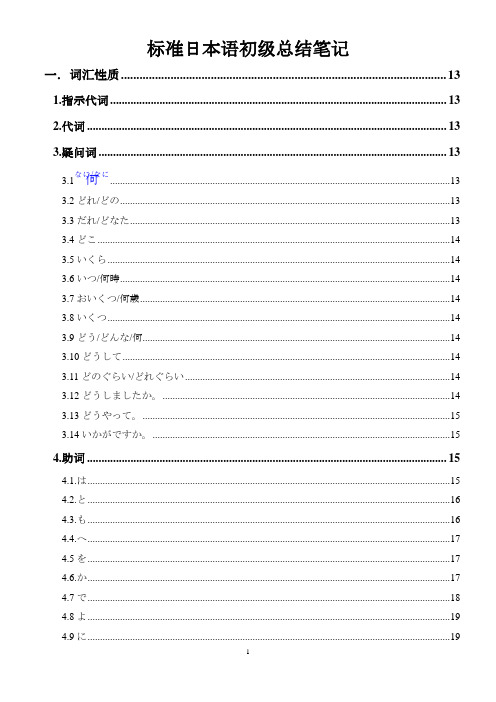
标准日本语初级总结笔记一.词汇性质 (13)1.指示代词 (13)2.代词 (13)3.疑问词 (13)3.1何なに/なに (13)3.2どれ/どの (13)3.3だれ/どなた (13)3.4どこ (14)3.5いくら (14)3.6いつ/何時 (14)3.7おいくつ/何歳 (14)3.8いくつ (14)3.9どう/どんな/何 (14)3.10どうして (14)3.11どのぐらい/どれぐらい (14)3.12どうしましたか。
(14)3.13どうやって。
(15)3.14いかがですか。
(15)4.助词 (15)4.1.は (15)4.2.と (16)4.3.も (16)4.4.へ (17)4.5を (17)4.6.か (17)4.7で (18)4.8よ (19)4.9に (19)4.10が (20)4.11でも (21)4.12の (22)5.副词 (22)6.叹词 (28)7.接续词 (29)二.时态/形态 (31)1.动词 (31)1.1时态 (31)1.2形态 (31)1.3自动词与他动词 (34)2.形容词 (34)2.1.时态/形态 (34)2.2.形容词修饰名词 (35)2.3.形容词の并列 (35)2.4.形容词→副词 (36)2.5形容词→名词 (36)2.6.形容词の变化形 (36)三.词法 (38)1.会社員・社員「1」 (38)2.上うえ/下した/前まえ/後うしろ/隣となり/中なか/外そと/左ひだり/右みぎ「2」 (38)3.~ごろ「4」 (38)4.家いえ/うち「6」 (38)5.さっき/たった今「8」 (38)6.前に「时间」「8」 (39)7.表示程度的副词「9」 (39)8.表示频率的副词「11」 (39)9.用よう「9」 (39)10.世界中せかいじゅう「10」 (39)11.形容词+の「10」 (39)12.最近「12」 (40)13.駅前「13」 (40)14.お金を下ろします「14」 (40)15.無理をしてはいけません「15」 (40)16.薬を出します (40)17.~中じゅうに ................................................................................................................... 40 18.声こえ/音おと (41)19.3割わり引びき (41)20.似に合あう (41)21.何+量词+も+肯定 (41)22.~のところ (41)23.あたり/辺 (41)24.通う/行く (42)25先 (42)26楽しみです (42)27.~でいっぱい (42)28.でできた (43)29.ほど/ぐらい (43)30.それにしても (43)31.あちこち (43)32.もったいない (44)33.何かあった (44)34あと~ (44)35.どの家でも (44)36.名のとおりに (44)37.数量词は~ (45)38とにかく (45)39数量词+とも (45)40参りました (45)41.巻まき込こまれて (45)42~に似ています (45)43.点动词/持续动词 (46)43.1までに/まで (46)43.2間に/間 (46)四.句型 (47)1.判断句「1」 (47)1.1......は......です。
新版标准日本语初级最详笔记
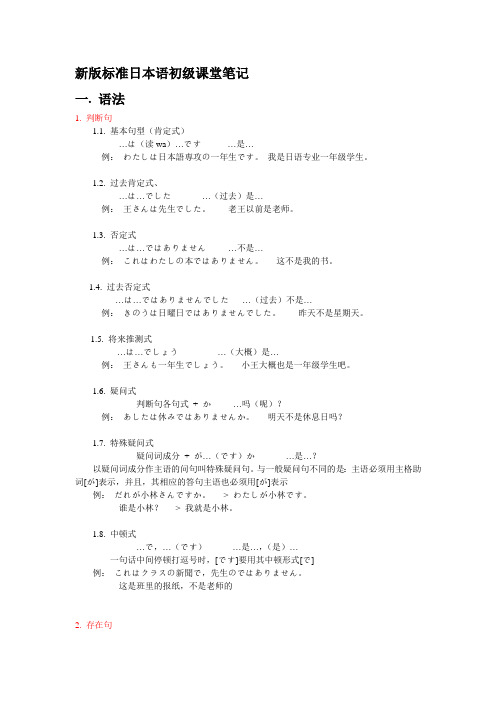
新版标准日本语初级课堂笔记一. 语法1. 判断句1.1. 基本句型(肯定式)…は(读wa)…です…是…例:わたしは日本語専攻の一年生です。
我是日语专业一年级学生。
1.2. 过去肯定式、…は…でした…(过去)是…例:王さんは先生でした。
老王以前是老师。
1.3. 否定式…は…ではありません…不是…例:これはわたしの本ではありません。
这不是我的书。
1.4. 过去否定式…は…ではありませんでした…(过去)不是…例:きのうは日曜日ではありませんでした。
昨天不是星期天。
1.5. 将来推测式…は…でしょう…(大概)是…例:王さんも一年生でしょう。
小王大概也是一年级学生吧。
1.6. 疑问式判断句各句式+ か…吗(呢)?例:あしたは休みではありませんか。
明天不是休息日吗?1.7. 特殊疑问式疑问词成分+ が…(です)か…是…?以疑问词成分作主语的问句叫特殊疑问句。
与一般疑问句不同的是:主语必须用主格助词[が]表示,并且,其相应的答句主语也必须用[が]表示例:だれが小林さんですか。
---> わたしが小林です。
谁是小林?---> 我就是小林。
1.8. 中顿式…で,…(です)…是…,(是)…一句话中间停顿打逗号时,[です]要用其中顿形式[で]例:これはクラスの新聞で,先生のではありません。
这是班里的报纸,不是老师的2. 存在句以存在动词[ある、いる、(おる)]作谓语的句子叫作存在句。
存在动词的敬体形式为[あります、います]2.1. 存在动词的含义存在动词具有“有”和“在”两种含义。
含义的区分,主要取决于动词前的助词,基本规律为:…があります(、います)…有……にあります(、います)…在…例:庭があります。
有(一个)院子。
庭にあります。
在院子里。
2.2. 存在动词的分工存在动词[あります] 和[います(おります)] 分别用于不同场合,具体分工如下:あります——用于表示事、物います——用于表示人、动物おります——用于表示第一人称及相关场合,含自谦语气例:きょう映画があります。
《新版标准日本语初级》TXT课文+笔记。第11课
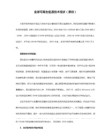
金さんは やさいが 嫌いです。だから あまり 野菜を 食べません。
(金女士不喜欢蔬菜,所以不怎么吃。)
あしたは 休みです。ですから、こどもと 動物園へ 行きます。
(明天休息,所以我跟孩子去动物园。)
5、频率的副词
“いつも”“よく”“時々”“たまに”“あまり”“全然”等是表示频率的副词。“あまり”“全然”后面须接否定形式。
说明原因、理由时用助词“から”。“から”位于陈述原因、理由的小句的句尾。通常是在说明原因、理由之后再陈述结论,但有时也可以先陈述结论再说明原因、理由,不过无论是哪一种情况,“から”都须接在表示原因、理由小句的句尾。构成复句的句子我们称之为小句。
森さんは お酒が 好きですから、毎日 飲みます。
★基本课文★
1、小野さんは 歌が 好きです。
2、スミスさんは 韓国語が わかります。
3、吉田さんは 時々 中国や 韓国へ 行きます。
4、森さんは お酒が 好きですから、毎日 飲みます。
A
甲:吉田さんは 料理が できますか。
乙:いいえ、ぜんぜん できません
B
甲:どんな 音楽が 好きですか
小野:うーん,そうですね…,迷いますね。
長島:寄木細工は いかがですか。とても 有名ですよ。
小野:きれいな 模様ですね。
小野:ええ。
長島:気に いりましたか。
李:はい,とても。
わたしは たまに コンサートへ 行きます。(我偶尔去听听音乐会。)
李さんは 時々 映画を 見ます(小李有时看电影。)
田中さんは あまり 横浜へは 行きません。(田中先生不太去横滨。)
6、* どうしてですか
询问事由时使用“どうしてですか”,相当于汉语中“为什么”。回答时在谓语后面加“から”。
《新版标准日本语初级》TXT课文+笔记。第13课

※:“7人”也可以读作“しちにん”
※:上表只是1~10和几个常用量词的搭配表。
——この 動物園には 象が 二頭 います。(这个动物园内有两头大象。)
——友達に 猫を 一匹 もらいました。 (从朋友那里得到一只猫。)
2、名 [ 时间 ] + 动
表示时间数量的词语和动词一起使用时,说明动作、状态的持续时间。这时候表示时间数量的词语后面不能加“に”。
——李さんは 毎日 七時間 働きます。(小李每天工作7小时。)
——午後 郵便局 へ 荷物を 出し に 行きます。
(下午去邮局寄包裹。)
——小野さんは プール へ 泳ぎ に 行きます。
(小野女士去游泳池游泳。)
——李さんは わたしの 家 へ 遊び に 来ました。
(小李来我家玩了。)
6、名 [ 数量 ] + で
用于不称重量而以数个的方式售物。
小野:わたしも よく 来ます。
(对店员)
森:あのう、すみません。
とりあえず 生ビールを 3つ お願いします。
(一边看菜单)
李:生ビールが 1杯 300円ですか。
森:ここは お酒も 食べ物も 安いです。
焼き鳥は 5本で 400円 ですからね。
小野:唐揚げや 肉じゃがは 1皿350円です。
——卵を 一個 食べます。 (吃一个鸡蛋。)
——本を 二冊 買いました。 (买了两本书。)
《新版标准日本语初级》TXT课文+笔记。第35课
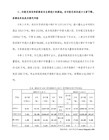
助词“は”接在数量词后面与肯定形式呼应使用时,表示该数量为最低限度。
▲ 小野さんが作ったギョーザだったら、30個は大丈夫ですよ。(要是小野做的饺子,我吃30个也没有问题。)
▲ このカメラの修理 はどのぐらいかかりますか。
ーーーそうですね、10日はかかりますよ。(修这个照相机要花多长时间?----恩,至少要10天。)
▲駅前で何かあったんですか。人が集まっていますよ。(车站附近发生了什么事?聚了很多人哪。)
2、あと~
“あと”除可后续“少し”以外,还可以后续“1人”“1つ”“3日”等数量词,表示只要再有一个很少的量就可以完成某事或使某事态成立。
▲すみません、あと少しだけ待ってください。(对不起,请稍等片刻。)
※应用课文※
应用课文 ホームパーティー
点偶查看>>>译文
李:あのう、お酒があったら、少し入れてくれませんか。
(太田夫人倒了一勺酒)
夫人:一杯だけでいいですか。
李: いえ、三杯ぐらい入れてください。
夫人:李さん、ギョーザ を作るのが上手ですね。
李:ええ、北京では、ギョーザはどの家でも、自分たちで作って食べます。小さな子供でも上手ですよ。
若指“人”时,则不说“×どの人でも”而用“だれでも”,指时间时,也不说“×どの時でも”而说“いつでも”。此外,日语中没有“×毎家”“×毎人”的说法。
▲ このテレビゲームは簡単ですから、だれでもできますよ。(这个电子游戏很简单,谁都会玩。)
▲ このお店はいつでも込んでいます。(这个店什么时候客人都很多。)
夫人:私、本のとおりに作っても、なかなかうまくできませんですが、どうやったらおいしくなるんでしょうか。
初级日本语笔记(Primary Japanese notes)

初级日本语笔记(Primary Japanese notes)On the basic type of Clause 6.6.1... The... IsExample: This is a dry (clothes).This clothes.For example, the general (front position: Prince of , (this) it (GE)6.2... The... Are youExample: it is a dry (clothes).This is this clothes?6.3... What time is it?Example: This is what you areThis article 么?6.4... The... In thereFor example: (present) on the desk (table) (also).桌子 has on the BlackBerry.6.5... The... To youExample: the room (one).Yako no Sato.(the equation is the end of time is the end of time , formula for there is no life exists , Yu 东西)(Yu has existed for life.6.6... In... (it is)Example: desk and chair in the room (chair). Yako village has 桌子还有 chair and so on and so forth.Radio radio in the room is available. Yako Yayu Shu Ping village.6.7... In... That isExample: the cat on the chair (CAT).Cat on the chair has only.There is one body, one 处有 and worldly life.6.8... In... There areExample: if there is a pot.Li Na has this water bottle?6.9... In... I have noExample: No, this is in the pot, the pot.He has ,这里 having water bottle.(这两个句 child 一般用于对话.)6.10... In... There are several?Example: the room was on the desk (table) is a number (number). The village has a 几张桌子 shop?(the number is a number. Some thinking.6.11... And... Such asExample: there is a note book, note there are.Da Arimoto has 书还 village in children.(强调.6.12... The... So there is noExample: the school (was) not这里 school absence.Yes, it is.I am lonely is ,.No, that's not (difference).This is not the ,.6.13... ...The display of the contents of the shift 动性 focusing 经过, 动等.Example: every morning, I (Maia) home at seven (JO) () ()I get up at 每天七点离开家.6.14 at nominal (0.5 to 6.15 lyrics)Example: at seven o'clock.Ryo 已经 seven points.Table 一个状态转向另一个状态)6.16... The... But...I (have) (to) (well) as well.I can 饭 Association.(YuExpress one's feelings, feelings, talents, wishes, possession, needs, possibilities, etc6.17. B by A in this U... I wasExample: yesterday by this today of summerheat (I was feeling thou live).It's more hot today than it was yesterday.(compared with B, A is more...)6.18. A is B by this... I wasExample: China (UTI complete period): Japan Hiroshima () by this I live in.China is larger than japan.(A is better than B...)6.19... U (yo u) and Si (and MOO) Che ~ masu (first person)... U () after the last Si ~ masu (third person)3 think... The psychology of a speaker when he speaks4 a period of time when speaking5 questions with second personExample: the future (. J u RA Che), teachers (with j u - U.) in and Che Si ~ masu.I want to be a teacher in the future.Father (): sweet sweet home () or (KA) and buy complete and at last after thinking che (see the construct) (Ayumi) with hyperplastic ma.Father wanted to buy a good house and saw a lot of places.Thou - ta wa (University of nursing, on the Hai (HAI)) in the U and Si Hai ~ masu ka.Do you want to go to college?6.20. words (verb) + was still in shape evenI was independent of NOUNCommonly used in spoken english... I was on(used of an explanation or explanation of facts or reasons or according to the necessary results)For example: in the day (better): rain (thou will drop), (examples) after the ICDRG: I was in.It rained that day.6.21... You told me I was this childPlan to do...(I was feeling with this child node sentence is available when the first person)Example: students (U, J. On the estate of Che) (), when the doctor (woman Che Chan) in the analysis of this special issue on Naru moo.When I was a primary school student, I wanted to be a doctor.6.22. + tameniTable objective. An attributive can be either a noun or a verbExample: - cancer of tameni or Japanese ('s ki j u reluctantly). At last the ~ masu ka.What do you study Japanese for?6.23... Wa... And ('s words / language and sweet ~ masu)(indicating something can be said to be...)Example: language of CHO () of the former (Na ~ forms), and that is: Tel Chan ('s words / language and sweet ~ masu).The town is called [Hongqiao].6.24... (wa... In)... Sweet words and ~ masu(sb) (to sb) say...Example: Japanese: towards (National People (actually) better and will (in): when thou) after () on the wa yo u and last period "and said the ~ masu Che ~ masu.On the morning of Japanese met the person said: "yo u, ha ~ masu last period".6.25... O... Sweet words and ~ masu(handle... It's called...For example: Japanese: CIECC terms or national feeling of leaf thou che (Language and speech) and sweet words ~ masu.Call it "greetings" in japanese.6.26... What... O... In line with the ~ masu (to ~ masu)(said: come in and said to places)Example: Tokyo: what has been resolved in hyperplastic to Ma ka.What do you want to do in Tokyo?6.27... Hai Hai (Hai yo) speech(as long as... Just fineExample: language terms: U I live in here, sweet speech made me cry.How do you do it well?6.28... Scarlett and sweet ~ masu... And think you taught Ma hyperplastic (Si after the last ~ masu(node sentence is the main general guys for woman.)(in sentences, the subject can be the speaker and also the third person)Example: today is last day (at last, with cancer) and that over the last ~ masu.I think it's a fine day today.Tanaka San: today is the rain, drop in and Si Hai Ma hyperplastic.Mr. Tanaka thinks it's going to rain today.6.29... (on continued) before ():... (hyperplastic) after (in)(... Before)(... After)For example: on the phone. As before (in cancer (woman) in guys) that kind of estate of Ma hyperplastic.Call each other before you go.The meal period (Wa's) or food () in: after barely ~ masu.Study after dinner.6.30... J u wont.After all types of termination, they mean "guess", meaning "probably"... Right?".Example: language and woman in winter is cold () (National - live in better) on the j u. It's probably not cold this winter.This thou ~ 6.31... Have a sweet[this] thou ~ and a negative form of "Na Hai. Ma's estate] echo, said" less..." Italy.Example: the summer of Shanghai (aka Zu) is actually this summer (Ma Zu Na Hai de thou) on here. It's not too hot in summer in Shanghai.6.32... By this... In, u...This is the emphatic sentence of comparative sentence, meaning "and"... Compare,... (of a party) more...".Example: to construct, on this immediate of yo u, u (TA KA) live in high I. Compared to oranges, grapes are more expensive.6.33... For... For... NadoMeaning:"... ... ... Wait"Example: in a moviola, Ting Park, nado thou this ~ masu. There are cinemas, parks, etc in the city.Department of the Tokyo, lumira. Noyes of: Tanaka San of house in this thou ~ masu. The TV set, the radio, etc. are all in Tanaka's room.6.34. question word + moo... Negative expressionExpressing total negation means "nothing", "nothing"".Example: in terms of child nursing in Wa Hai Ma's estate. There is no one in the room.Hai Hai forms, in this thou ~ - on child's estate. No, nothing at all.6.35... Moo... Moo[moo] superposition, containing"... And... All..." Italy.Example: three years old was also Lee San San Wang moo moo. Xiao Li and Xiao Wang are both junior students.The cat () dog (last good) moo moo Hai Ma's estate. Neither cats nor dogs.6.36... (Japanese) tameni, 6.37...The word "body" or "verb" terminates the form, which means "purpose"..." Italy.Example: the forms of attack and or in tameni cleaning or hyperplastic ma. / in order to welcome the new year, we did a thorough cleaning.The father of tameni and buy wine or sweet ~ hyperplastic. My father bought / wine.6.38... Language and in hyperplastic ~.After the verb is connected to the figureDecision made by the first person. (first person) decision...".For example: to travel on the language and in hyperplastic ~. / (I) decided to go on a trip.In Japan and the forms of attack or in language and in hyperplastic ~. / (I) decide to spend the Spring Festival injapan.6.39... Ka... Have a sweet[]. As with a negative response, said sure, meaning "only...".Example: the court on a wood, woman, Thou soul of Ma's estate. There is only one tree in the yard.Mother: woman, sweet flowers and buy estate in hyperplastic ~ cancer. Mum only bought (fresh) flowers.6.40... You told me I was this childAfter the verb is connected with the figure, mean the intention. (first person) intend to...".Example: Sunday, after much better on the beauty of this child was still feeling hugh. I'm going to have a good rest on Sunday.The car has to buy this feeling I was a complete child. I plan to buy a car.6.41... Na, RA, 6.42...When the verb is used together, it means that the action is simultaneous. On one side... One side...".Example: tea or drink, and construct the Na ra te, or see the ~ masu noyes. Watch TV while you're having tea.Travel or woman, kind of sweet -, buy things or feeling this was still on continued moo. I plan to do some shopping while I'm playing.6.43... Sense (as on), on continued[] he made on continued general verbs (... Or on continued,) means "do" and "dry". But for the representation of human perception (taste, smell, hearing, intuition, etc.) [] on continued to do automatic word collocation and nominative use, []. [] on continued, sense of meaning "... "Feel", "feel"..."Example: sweet sweet feeling, ~ masu. It feels good.Last, have a sense of ~ masu GA. I find it offensive.6.44... For this... For this on continued[for] this is connected to the verb form (five verb form, sound) and adjective [Ka], describe the shape after a verb form [after] said that over, alternating action or state appear alternately, meaning "or... Or..." "For a while."... Awhile...". ,Yamashita: for example: after this to this woman at Ta Ta Hai ~ masu. Move back and forth under the hill.For this summer, after cold, after this TA ~ masu. It's cold and hot.Good for this kind of flying with nursing with nursing after this was still last for. I like it and hate it for a while.Adjectives and adjectival verbs in the sentence, [for] this available [on continued], also available in Japanese] [nursing, the end of the sentence.6.45... In ~ ~When the word is spoken, it means that it is "original"...". Translation is often flexible.Example: this period or skin cancer () of ~ ~ (for food) ~ masu. Eat apples with skin.Boots () of Ma Ma De: () after, in the case of. The shoes went into the house without taking off.6.46... Hyperplastic and RA[and] kind of hyperplastic is composed of [+] and on continued follow-up [TA RA], meaning "if... The term "pure" refers to a purely hypothetical condition and is generally used at the end of the simplified sentence.Li, for example: after TA and RA hyperplastic, u in U J. What will happen if Xiao Li is there?Sweet10 million yen (to you) , and what we used to do. Day starter book 10 million yuan, you get a 假如 lavori parties for you as 么, come from?6.47... IsApplication 词连 contact body which 强调 action after starting ,说明 (or missing. It's essential 变成.Example: the (best) is the most important thing. And the most important 书是东西., more than six hours sleep a lot of recovery. More than 6 个小 deductible hope no sleep can 复的 Hui , is big.6.48... By up to ByNominal contact after , display data, such as no reason ,须灵译 active transcription.Example: class level (put). Ryo 据水 root axis.People are different. A person or cause 而异.This is (not) (by accident). The accident caused by roughness of this substance and mind.6.49... (before)At the end of the Chinese 样 no 论句谓语时态,一律接在动词原形之后, display "in... Before ".Example: the food (that) (to) (to) (washing). And then 饭前finish washing hands.Before I sleep , wind () () (). And a main washing 个澡 before bedtime.6.50... And... (a) in the , 6.51 (either)...This is 一个比较选择句型 section, and before one is nominal, verbal 终止 is good. In a word, and then type the men before. Not before. And this can not , thumbs up "... And... Phase ratio (even if what's ,)... ".Example: fish and meat (FISH) (and) , which do you like better? Meat and 鱼与 phase ratio , you further 欢吃么 comic story?Red and white, and in which , clean? What's the color ratio and 红色 Wajiro drift to further , Ryo?No doubt about 6.52 问词 plusPositive or negative over the entire surface of the display ,thumbs up this "no 论... Metropolitan... ".Example: full (Anywhere). No man or 论哪儿都满为 disease (满guests).There is nothing. By no 论) 么都 utensil has died.6.53... IfContact 动词连用 (五段动词音便形), and said to the empress 词连 form. This will display ,让步 conditions , "Jishi...Tatsuya... "Example: don't break it. Ryoya Jishi formation and resting.Want to buy high. And the main 买 Jishi 贵也.6.54... SoUsing the contact form 词连 empress "image display ,... 一样地 "thumbs up our ,译时应灵 active 处理.Example: you like Mr. Tanaka said. Study on said in 样做 teruta Na.As can be seen from the above , gold () () a lot of potatoes. As a positive, practical ability 从这 clear that come ,一样 Kaneko tsuneshige 东西 manner.6.55... If you have notContact 动词 imperfective form after , "thumbs up to this 须...".Example: we are a foreign language (Bilingual) study should be allowed.We must study hard at foreign languages.Is on the line, as two terms at this speech - Ma's estate. Have to go.6.56... On and after theWhen the word is spoken, it means "yes"... Speaking".Example: students in the "big and flying, the child was also cut in two. Books are important to students.In the world and the life in the water after, is necessary to have a child. I was. For mankind, water is essential to life.6.57... And the womanWhen the word is spoken, it means "act"...".Example: students (this complete, on the estate and the woman cannot live) and their head line with hyperplastic ~. / went to Germany as an international student.For as for the woman and a test of forms, actually this ~ masu.A child has the idea of being a little child.6.58... a partyWhen the verb is connected, it means "on the one hand"... On the other hand...".Example: will increase the population: CIECC, live in forms of a party, population reduction, Tian: CIECC (:) after the last ~ masu. On the one hand, the population in the city is increasing; on the other hand, the population in the countryside is decreasing.I will praise in a party, the vicious mouth (in words or guys UTI) U. On the one hand, say nice things, on the other hand, speak ill (singing in the face and slander behind your back).6.59... The wa Na RA Na HaiWhen the verb is used in conjunction (the five verb turns into shape), it means "no"..." Italy.Example: Event - language and I wont forget Kara, this is the two terms of Ma's estate. Because it is very important, so do not forget.The woman has malignant sweet language and wa Na RA Na hai. / not to do bad things.In addition, the "Ha Na ra - Hai" can also be connected with "live" in - "-" on the infinitive, constitute "- on the wa - ra - the last sentence", meaning "indispensable".Example: air and earth is in the wa Na Na Na on the last child was still kind of. Air is indispensable to human beings.After the 6.60. down... Have a sweetAfter the woman down the "Adverb" must be used with a negative response, meaning "never...".Example: after the sunset. In terms of child nursing, guys - sweet words. Never tell anyone.After the woman is at grace period to forget ~ estate's terms. Your kindness will never be forgotten.6.61... Language and, in with.When the verb is connected with the shape of the body (the five paragraph of the verb, the shape of the sound), it means "yes", meaning "yes"..." Meeting...".One was for example: on the language and, in with the ~ masu.I can go alone.Japanese toilet paper (in the book, or on the language and construct), was with Ma's estate. I can't write in japanese.6.62... (TA) language and GA ARUWhen the verb is used in conjunction (the five verb turns into shape), it means "once."...".For example: Japan in the case of language and, after this thou ~ masu. I have been to japan.In the University in front in the Japanese into, or barely hyperplastic language and is actually much of Ma's estate. Never studied Japanese before entering the university.6.63... In the control.When the word is spoken, it means "yes"...".Example: the world is in the environment for environmental responsibility or to ta - at this estate's speech - terms of ma. Man must be responsible for the environment.AndFor customers to use polite language. Use the Japanese guests 对顾 bu.6.64... In theContact form of 动词连体 empress , display that is formed 结果观自 guests or customers of this nature will define , (变得)... " "(except for the first person) is determined...".Example: , do not know will not come. The position and effect on the road is the guide of , nature is not coming.Next week (Kyoto) ,) to (business). (company) under my left Kyoto was determined.6.65... Even if... In anywayEven if the present phrase type variable as this "... Thumbs up if , form , "Jishi" (this 纵然)... Tatsuya... ".Example: if you lie , think is necessary. And I 认为,纵然 is 谎话, Yayu was necessary.Even if , would not say. And no living thing 论发 Ryo 么circumstances, can not , said.6.66... Have to doContact 动词 imperfective form after this will not , "Ruguo... Study on the guide , conduct ".Example: I should take some medicine. 药可呦 stuttering or conduct.You are not alone. Deductible (and you) is 一个人来的话, not on the line.6.67... Than... (a) , 6.68..."The original" movable contact verbs or nouns in the positive ratio of empress , denotational 较选择, "and this will... The phase ratio ,... Further, on the other hand)... ".Example: you had better not go I go by. Removing and phase ratio and , and not go further.Li you king you tall (high). And phase ratio and small 个头komomo , king also high.6.69... It is theContact 动词连用 (五段动词音便形) after ,强调conditions , will only display this "... Years old... ".Example: what is seen on my own. And only 亲自 made clear theage group.It is possible that money. Ryo has only to get a 钱办 talent.6.70... PleaseContact 动词连用 (五段动词音便形) after the display , Bu imperative , thumbs up this "please..." "... Kana ".Example: go quickly. Go and comfort. 请快.Please tell me the way to the hospital. 请告诉我 off the road and the Chinese 么走 clinic.6.71... (to)The original form of contact 动词 empress , sexual display 经常动作, thumbs up this "often".Example: you can go to travel alone. And 一个人 usually go travel.It is frustrating. And often is not 宁 insanity.6.72... May beAnd the prince of the respective contact 动词 adjective 类终locking type, name and 动词词干词之 grasp an empress ,displayed great 推测, thumbs up this "ye 许...".Example: Mr. Yamada came to Japan may have. Yamada Tatsuya 许回 Japan.If , (one)Traffic (and) may be useful. And the young are 一带的话, was 许还方 traffic service.6.73... Don'tContact 动词连用 (五段动词音便形) after , display inhibition , thumbs up this "can not..." "... Conduct ".Example: don't smoke in the bus. In public 车上 steam can not 吸烟.More from the bad , must not eat. And 已经 can be destroyed from basis as , can not eat.6.74... In the动词连体 contact form (original) after , show ofmicro-amounts of , thumbs up this "(团体, organization, etc.) is determined...". Commonly used "... "It was 时态" or ".Example: I have to go to Japan to study abroad. (school) I go to Japan study abroad is determined.This time (this time) Saturday and Sunday () (as) (how) to exercise it. The constant 六和周日开运动会 Zhou Yu.6.75... ToUse ":" "" 一般作他动词, variable in normal and 带宾,宾格 assistant 一起出现 lyrics for ", formation... The phrase "to be displayed and human feeling" to "(but this position: taste, 觉嗅觉, listen to the 觉觉 name, etc.) 一起使用时lyrics by self ,动词, nominative and assistant" Prince "is used for forming the Kazuki ,"... The phrase ".Always see "... Has a structure that:... Taste (taste) and then to... Taste. Have... Flavour.... System () to 闻到... Approaches to taste. 发出 powder... Approaches to taste.... Listen to the sounds () (in which the 传来发出)... 响voice.... Listen to the voice () (in which the 传来发出)... Voice.... (I) and 觉得.... And my... Feel.Example: plain taste of Japanese food. Japan dishes taste pale Kiyoshi.The smell of roses. Rose, memory, and 发出 flavor (incense 呀).The sound of knocking. And 响起门声 hammer.It was the children's voices. A small child or coming and voice.It makes you feel cold. 觉得 and cold.I feel funny. And my funny.The constant 语时, made in combination of the above subject often 换成 "lyrics" assistant "".Yuji: (elder sister) received from the sound of a bell. Male 二从姐姐那儿得到了一个会发出响声的小铃铛.I like the taste of the food. Miki Kiyoshi and 欢吃 taste pale manner.6.76... While"Contact" 动词 empress of ,其前 surface 动词 public need "" , display form 维持已有 ecology , thumbs up this "... The empress of kazunao (having)... ".Example: (left) to go back. The empress 一直没有回来 and go abroad.I bought this , while reading a book. And can seatI haven't read the book since I bought it.6.77... For respect toThe verb prototype means "whenever... (at the moment)".Beijing: for example: on the case of respect to Tiananmen, (the child's cancer cancer thou Plaza (better) speech) / every time I go to Beijing, go to Tiananmen square.The truth was to write or see in respect to a case, the University (nursing last) of language and thought, the last national terms ~ masu. Whenever I look at this picture, I remember College days.6.78... The KaraThe "Kara" in verb form (five verb voice form), meaning"... After".Example: Pharmaceutical () or drink on in Kara, construct the ~ masu hugh. After taking the medicine, take a rest.Eat something. Or the Kara, stroll (San ~ masu). Have a walk after dinner.6.79... (by hand) in the in terms.When the word is connected, it means "put"... Get hold of".Example: the spin off of fries - clima Noyes or hand in terms of Ma communication in hyperplastic. Got a ticket for the ballet.Na Ka Na Ka in hand into the language and, in terms of Ma's estatein paint. It's hard to get.6.80... Kara Ka Na Hai pointsAfter the end of the simplified sentence or noun, it means "don't know"...".Example: nursing students, divided into Japanese terms, as much of Ma's estate. It's difficult to know who is a Japanese student.The hospital is was divided as much as in the Aru Ma's estate.I don't know where the hospital is.6.81... Yo u / u and on continuedAfter a verb is measured, a desire or an attempt to express (the first person). Want to..." Attempt to...".For example: Japan: study in advance and complete. At last the ~ masu. I want to study in japan.Thou son of (was) a flower or. And at last longer and I was in yo u. The child / seems to want to pick flowers.6.82... At last, we are two guys liveWhen the verb is terminated, it means something that cannot be done under the restrictions of the objective conditions. Can not...".Example: the cat that over the Kara, if I live in is with guys at Ma's estate. Because it's a cat, naturally it can't speak.In the form of lumira hospital, it was a song at u guys in the election: live with Ma's estate. In the hospital, naturally, Cara OK is out of the question.6.83... And (or) than of in - kind - sweet childWhen the word is connected, it means "and"... Cannot be compared with".Example: Japanese language forms of speech: Li Hai, and of in - room than the child's estate ~ ne. I can't compare Japanese with Xiao Li (not Xiao Li's opponent).I was a child moo Kara, adults (and and -) and a child of than in Na Na Hai in j u RA. Since you're still a child, you can't compare yourself with adults.6.84... Yo u:"Yo u:" after the verb, can express a certain purpose, similar to the "tameni", meaning "to...".Example: the wind evil, or live in yo u have a lead, or pay down the national - hai. Please be careful not to catch cold. (= = be careful not to catch cold.).In combination between complete by complete as early as on a mount of Ma hyperplastic. / in order not to be late, early door.6.85... By this (MOO)"Yo (MOO) this" after the words that even the body or body language, said some suggestions for"And that is... Not... ".Example: by taking drugs (slowly) , rest is better. And 其吃 Products Merchant Association and , not at a good rest.Metro (subway) than to take a taxi go. And 其坐 out or not and so ,乘地铁去.6.86... I want youContact 动词连用 (五段动词音便形) after aspiration of the display , first-person accounts. This 一般用于上对下或对等关系的场合, thumbs up "(you)".Example: I want a faster. Hope you happy ability.As long as you want. Hope you 给我买包 smoke was coming.6.87... Must haveContact 动词, 词终 locking type or substantive adjective, 动词词干 empress , affirmative judgment 较为 display ,thumbs up this "no doubt (that)..." "(this)".Example: I wrote a letter to that person must be. And the otherbook is positive.In the experiment, which is a must have. The main 试 and positive study.6.88... We (will)"Contact" 动词 past a certain 时后, briefed on the display 种虚拟状, thumbs up this "tosaku..." "With this self...".Example: going back in time , slowly off. Self starter book iesato , times on this as soon as it is a good rest.I () () , is going with you the painting thought. And with my own 为画 is variable 鸽子, authority (I like), this is 认为乌鸦.6.89... Where"Normal" and "contact in the form of 动词 empress" , where certain 种不 with dynamic display 时宜场合, thumbs up this "(right)... No men ".Example: when , yawning was taken in photography. Under the driving of 哈欠 positive in the cartoon.(MOM) is estimated to have been , was seen by the teacher. Positive impact of the old men 瞌睡,师看 forever.6.90... Please don't。
标准日本语(初级)语法笔记
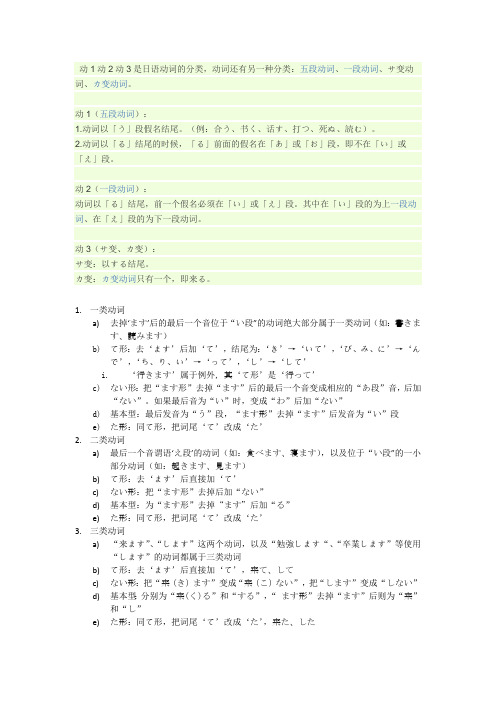
动1动2动3是日语动词的分类,动词还有另一种分类:五段动词、一段动词、サ变动词、カ变动词。
动1(五段动词):1.动词以「う」段假名结尾。
(例:合う、书く、话す、打つ、死ぬ、読む)。
2.动词以「る」结尾的时候,「る」前面的假名在「あ」或「お」段,即不在「い」或「え」段。
动2(一段动词):动词以「る」结尾,前一个假名必须在「い」或「え」段。
其中在「い」段的为上一段动词、在「え」段的为下一段动词。
动3(サ变、カ变):サ变:以する结尾。
カ变:カ变动词只有一个,即来る。
1.一类动词a)去掉‘ます’后的最后一个音位于“い段”的动词绝大部分属于一类动词(如:書きます、読みます)b)て形:去‘ます’后加‘て’,结尾为:‘き’→‘いて’,‘び、み、に’→‘んで’,‘ち、り、い’→‘って’,‘し’→‘して’i.‘行きます’属于例外,其‘て形’是‘行って’c)ない形:把“ます形”去掉“ます”后的最后一个音变成相应的“あ段”音,后加“ない”。
如果最后音为“い”时,变成“わ”后加“ない”d)基本型:最后发音为“う”段,“ます形”去掉“ます”后发音为“い”段e)た形:同て形,把词尾‘て’改成‘た’2.二类动词a)最后一个音谓语‘え段’的动词(如:食べます、寝ます),以及位于“い段”的一小部分动词(如:起きます、見ます)b)て形:去‘ます’后直接加‘て’c)ない形:把“ます形”去掉后加“ない”d)基本型:为“ます形”去掉“ます”后加“る”e)た形:同て形,把词尾‘て’改成‘た’3.三类动词a)“来ます”、“します”这两个动词,以及“勉強します“、“卒業します”等使用“します”的动词都属于三类动词b)て形:去‘ます’后直接加‘て’,来て、してc)ない形:把“来(き)ます”变成“来(こ)ない”,把“します”变成“しない”d)基本型:分别为“来(く)る”和“する”,“ます形”去掉“ます”后则为“来”和“し”e)た形:同て形,把词尾‘て’改成‘た’,来た、した1.一类形容词2.二类形容词一类形容词(い结尾)直接借名次修饰1.多い(おおい)和少ない(すくない)不能直接接名次,要改成たくさんの2.楽しい(たのしい)等用于表达感情的一类形容词只能用于主题是第一人称的谓语1.自动次和他动词a)最典型的他动词只有主语作用于宾语而使其发生变化的含义,其宾语用“を”表示b)自动词是是不带宾语的动词,表示不考虑外力影响的情况下,主语自主的进行动作,或自然的发生变化,其主语用“が”表示。
《新版标准日本语初级》TXT课文+笔记。第14课
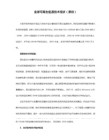
A
甲:今日の 午後は 何を しますか。
乙:図書館へ 行って、勉強を します。
B
甲:いつ 出かけますか。
乙:昼ご飯を 食べてから 出かけます。
C
甲:すみません、この 荷物を 中国へ 送って ください。
乙:船便ですか、航空便ですか。
甲:船便で お願いいたします。
D
甲:この バスは 駅前を 通りますか。
5.名[场所]を 动 [经过] [离开]
经过的场所用助词“を”表示,常用的动词有“通ります”“渡ります”“過ぎます”等。此外,“を”与动词“出ます”“卒業します”等搭配使用时,表示离开的场所。
この バスは 駅前 を 通ります。(这趟公共汽车经过车站一带。)
この 道を まっすぐ 行って、橋 を 渡って ください。(顺这条路一直走,再过那座桥。)
基本课文
2.动て 动 [相继发生]
表述两个以上的动作依照时间顺序相继发生时,可以使用“动词て形 + 动词”的形式来表示。
昨日 デパートへ 行って、買い物しました。(昨天去商场买东西了。)
家へ 帰って、宿題を します。(回家,(然后)做作业。)
図書館へ 行って 本を 借りて、家へ 帰ります。(去图书馆借书,(然后)回家。)
(2)表示“已经”的意思。
もう 遅い。(已经晚了。)
もう 帰りました。(已经回去了。)
もう 帰っても いいですか。(已经可以回去了吗?)
はい、帰ってもいいです。(是的,可以回去了。)
いいえ、まだ帰ってはいけません。(不,还不能回去。)
(3)表示“马上就要……”“快要……”的意思。
3.动てから 动 [相继发生]
《新版标准日本语初级》TXT课文+笔记。第30课
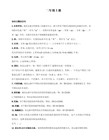
①.明日,病院ヘ行こうと思っています。(我明天想去医院)
②.今度,長江下りをしようと思っています。(我想下次坐船游览长江两岸的风光)
注:动词意志形+と思います和动词意志形+と思っています的区别在于:
①.动词意志形+と思っています是表示已经在脑子里想了一段时间的事了。
动词意志形+と思います是表达当场的意志。
构成方式:
■一类动词:把基本形最后一个音变成相应的"お"段上的音的长音。
■二类动词:把基本形的"る"变成"よう"。
■三类动词:把"来る"变成"来よう",把"する"变成"しよう"。
图1
例:
①.もう11時だから寝よう。(已经11点了,睡觉吧)
②.仕事が終わってから,飲みに行こうよ。(工作结束后去喝酒吧)
②.香港からお客さんが来るので,空港へ迎えに行きます。(有客户从香港来,我要去机场迎接)
注:“~ので”和“~から”相比,较为礼貌郑重,所以多用于正式场合。口语中往往发成“~んで”。
“小句2”表示提议时,必须使用“~から”。
③.電車が遅れたんで,遅刻しました。すみません。(电车晚点我迟到了,对不起)
第30课 もう11時だから寝よう
▲基本课文▲
1.もう11時だから寝よう。
2.今日,会社を休もうと思います。
3.明日,病院ヘ行こうと思っています。
4.荷物が重いので,宅配 便で送ります。
A
甲: 仕事が終わってから,飲みに行こうよ。
乙: ごめん。明日早いから,今日はちょっと。
初级标准日本语课文+超详细课堂笔记

第1课田中(说爪卞本课重点:3 .〜怎〜丁力、4.〜怎〜。
〜疋丁田中田中日本人(田中会社員(^VL^V^)^T(2)王(fe^)^To王日本人m王HW中国人(^^^^<Cn)^To王会社員m王Kg学生(^<^V)^To王K心止東京大学(留学生((3)田中:求LT。
王:求L疋。
^^L^ 王^To 田中:袒尢L^ 田中^To 王:田中会社員IT力、。
田中:乞T^T °会社員^To 旅行社①社員^To5肚尢怎会社員^T^o王:》*、元、乞学生^To東京大学①留学生IT本课词汇単語 IO 〔代〕我会社員(③〔名〕公司职员 学生(力,PV )O 〔名〕学生 留学生(④〔名〕留学生④ 〔寒暄〕初次见面(寒暄语)①〔感〕 是,是的(答应声或用于回答)乞刁①〔副〕那样 旅行社(^^^^L^) ②〔名〕旅行社社員(L^V 心①〔名〕职员 你不,不是(用于回答) 〔专〕 田中(姓氏)王角引①〔专〕王単語 II 彼(力、⑴①代〕 他 彼女(^OC^) ②〔代〕她山下(壬求L 尢)② 〔专〕 山下(姓氏) ①〔专〕史密斯T^V 力 0 〔专〕美国课 程 译 文:第1 课 我是田中l ) 我是田中。
田中是日本人。
田中是公司职员。
2) 我是小王。
小王不是日本人。
小王是中国人。
小王不是公司职员。
小王是学生。
小王是东京大学的留学生3)田中:初次见面。
王:初次见面。
我姓王。
田中:我是田中。
王:田中先生是公司职员吗?田中:是,是的。
是职员。
是旅行社的职员。
您是公司职员吗 7课程讲解: 发音与书写1 元音日语发音的基础是“厉元”“指”五个元音。
元音发音不正确, 会使人不易理解。
学习新词语时,必须注意元音的发 音,尤其时 “厉”一“元”“元”一“X ”容易混淆,更应注意。
请仔细练习读出下列平假名,注意正确发出元音。
XA力、<乙_ 力、 乙_L TTc TO Tcfe OO中国(^^^^<) ①〔专〕 東京大学(^^^^^^V^<)中国⑤ 〔专〕 东京大学 厉肚尢②〔代〕VV 元③〔感〕 田中(尢肚力、)0日本(^^^)②〔专〕日本Q族XG> n n 5 G> 5X A b2”和““:b”W 读作wa,”读卖作ha。
《新版标准日本语初级》TXT课文+笔记。第15课

小野:もう病院ቤተ መጻሕፍቲ ባይዱ行きましたか。
李:いいえ、まだです。
小野:じゃあ、病院に行ってから、ゆっくり休んでください。
李:はい、ありがとうございます。
(在医院里)
医者:風邪ですね。温かい物を食べて、十分睡眠をとってください。それから今晩お風呂に入ってはいけませんよ。
李:分かりました。
医者:では、薬を出します。薬局に行って、もらってください。
李:ありがとうございました。
医者:お大事に。
3:动ては いけません
表示禁止时,使用“动词て形+は+いけません”。
?飛行機の中でタバコを吸ってはいけません。(飞机上不能吸烟。)
?教室でものを食べてはいけません。(教室里不能吃东西。)
?この部屋に入ってはいけませんか。(不能进这个屋子吗?)
————はい、入ってはいけません。(是的,不能。)
?李さんは電車に乗りました。(小李上了电车。)
?この椅子に座ってください。(请坐在这把椅子上。)
?李さんはかばんに書類を入れました。(小李把文件放在包里了。)
注意:这种情况绝对不能用“を”表示。
“≠ 電車を乗ります。”“≠ 自転車を乗ります。”
5:名[目的地]に 动
第6课我们学习了表示移动行为的目的地的助词“へ”(第6课语法解释1)。移动行为的目的地既可以用“へ”表示,也可以用“に”表示。
?小野さんは今新聞を読んでいます。(小野女士现在正在看报。)
?森さんは今仕事をしています。(森先生正在工作。)
?太郎さんはコーヒーを飲んでいます。(太郎在喝咖啡。)
2:动ても いいです
- 1、下载文档前请自行甄别文档内容的完整性,平台不提供额外的编辑、内容补充、找答案等附加服务。
- 2、"仅部分预览"的文档,不可在线预览部分如存在完整性等问题,可反馈申请退款(可完整预览的文档不适用该条件!)。
- 3、如文档侵犯您的权益,请联系客服反馈,我们会尽快为您处理(人工客服工作时间:9:00-18:30)。
みゃ ミャ mya みゅ ミュ myu みょ ミョ myo
りゃ リャ rya りゅ リュ ryu りょ リョ ryo
ぎゃ ギャ gya ぎゅ ギュ gyu ぎょ ギョ gyo
じゃ ジャ zya/ja じゅ ジュ yu/ju じょ ジョzyo/jo
主語 しゅご 主语
述語 じゅつご 谓语
客語 きゃくご 宾语
補語 ほご 补语
連体修飾語 れんたいしゅうしょくご 连体修饰语(体修)
連用修飾語 れんようしゅうしょくご 连用修饰语(用修)
提示語 ていじご 外位语(提示语)
同格語 どうかくご 同位语(同格语)
だ ダ da ぢ ヂ ji/di づ ヅ zu/du で デ de ど ド do
ば バ ba び ビ bi ぶ ブ bu べ ベ be ぼ ボ bo
ぱ パ pa ぴ ピ pi ぷ プ pu ぺ ペ pe ぽ ポ po
きゃ キャ kya きゅ キュ kyu きょ キョ kyo
* ぢ/ヂ其读音为ji,但在输入时应该输入di。而づ/ヅ的读音虽为zu,但在输入时应该输入du。
* 要输入し/シ时可以输入si或shi。要输入じ/ジ可以输入ji或zi。
* は在作助词用时,读作wa,但输入仍为ha。を/ヲ的读音为o,但输入时为wo。
2. 常识
2.1. 外来语
ら ラ ra り リ ri る ル ru れ レ re ろ ロ ro
わ ワ wa を ヲ o/wo
ん ン n
が ガ ga ぎ ギ gi ぐ グ gu げ ゲ ge ご ゴ go
ざ ザ za じ ジ zi/ji ず ズ zu ぜ ゼ ze ぞ ゾ zo
0型:表示只有第一拍低,其他各拍都高。
①型:表示只有第一拍高,以下各拍都低。
②型:表示只有第二拍高,第一拍和第三拍以下各拍都低。
③型:表示第二拍、第三拍高,第一拍和第四拍以下各拍都低。
④型:表示第二拍至第四拍高,第一拍和第五拍以下各拍都低。
⑤型:表示第二拍至第五拍高,第一拍和第六拍以下各拍都低。
自動詞 じどうし 自动词(不及物动词)
他動詞 たどうし 他动词(及物动词)
単語 たんご 单词
文 ぶん 句子
文節 ぶんせつ (文节)
連文節 れんぶんせつ 词组(连文节)
単文 たんぶん 单句
複文 ふくぶん 复句
山田 山田 やまだ 丰田 豊田 とよた
田中 田中 たなか 本田 本田 ほんだ
齐藤 斎藤 さいとう 山本 山本 やまもと
佐藤 佐藤 さとう 森 森 もり
木村 木村 きむら 林 林 はやし
木下 木下 きのした 小林 小林 こばやし
川边 川辺 かあべ 藤原 藤原 ふじはら
しゃ シャ sya しゅ シュ syu しょ ショ syo
ちゃ チャ cya ちゅ チュ cyu ちょ チョ cyo
にゃ ニャ nya にゅ ニュ nyu にょ ニョ nyo
ひゃ ヒャ hya ひゅ ヒュ hyu ひょ ヒョ hyo
な ナ na に ニ ni ぬ ヌ nu ね ネ ne の ノ no
は ハ ha ひ ヒ hi ふ フ fu へ ヘ he ほ ホ ho
ま マ ma み ミ mi む ム mu め メ me も モ mo
や ヤ ya ゆ ユ yu よ ヨ yo
1. 日语假名及其发音一览
平 片 罗 平 片 罗 平 片 罗 平 片 罗 平 片 罗
假 假 马 假 假 马 假 假 马 假 假 马 假 假 马
音 音 音 音 音
______________________________________________________________________________
单词 独立词 有词尾变化 可以作谓语 用言 动词
形容词
形容动词
没有词尾变化 可以作主语 体言 名词
数词
代名词
不可以作主语 作修饰语 修饰体言——连体词
修饰用言——副词
不可以作修饰语 起接续作用——接续词
没有接续作用——感叹词
附属词 有词尾变化 助动词
外来语的长音原则上是用长音符号“—”来书写。例如:オーバーコート。但也有不写长音符号而添写元音的习惯,例如:ミイラ,バレエ,レイアウト,ボウリング等。
相当于英语词尾的-er、-or、-ar的音,原则上作为ア段长音用长音符号“—”来书写,但也经常按习惯省去“—”。例如:エレベータ(-),コンピュータ(ー)等。
黎 黎 れい 罗 羅 ら
林 林 りん 韩 韓 かん
朱 朱 しゅ 吴 呉 ご
周 周 しゅう 梁 梁 りょう
齐 斉 さい 江 江 こう
杨 楊 よう 刘 劉 りゅう
许 許 きょ 柳 柳 りゅう
徐 徐 じょ 吕 呂 ろ
秦 秦 しん 陈 陳 ちん
あ ア a い イ i う ウ u え エ e お オ o
か カ ka き キ ki く ク ku け ケ ke こ コ ko
さ サ sa し シ si/shi す ス su せ セ se そ ソ so
た タ ta ち チ chi つ ツ tsu て テ te と ト to
____________________________________________________
赵 趙 ちょう 黄 黄 こう
张 張 ちょう 王 王 おう
章 章 しょう 曾 曾 そ
蒋 蒋 しょう 宋 宋 そう
そん
例如:たばこ(煙草)、てんぷら(天婦羅)、かっぱ(合羽)、じゅばん(襦袢)、きせる(煙管)
已经日本语化、但仍然有来自外国语的感觉的词汇,一般用片假名书写。这一类词汇的词形比较固定。
例如:ラジオ、ナイフ,スタート,オーバー,ガラス,パン,ピアノ
明显地带有来自外国语的感觉的词汇,用片假名书写。这一类词汇往往词形(即写法)不大固定,但部分有习惯写法的一般按照习惯写法来书写。这类词汇可能会使用现代日语中的和语词汇和汉语词汇所没有的音节来进行书写。这些特殊的音节假名用于书写比较接近原音或原拼写方法的外来语、外国地名和人名等。这些特殊音节假名包括:
びゃ ビャ bya びゅ ビュ byu びょ ビョ byo
ぴゃ ピャ pya ぴゅ ピュ pyu ぴょ ピョ pyo
说明:
* 拨音(ん/ツ)用“n”表示。如:新聞(しんぶん)sinbun、民族(みんぞく)minzoku。
* 促音(小つ)将后面的子音重写两个来表示。如:国家(こっか)kokka、雑誌(ざっし)zasshi。但在つ的前面则加“t”来表示,如:発着(はっちゃく)hatchaku。(但在输入时仍应输入hacchaku)
没有词尾变化 助词
说明:独立词在句子里具有独立的概念,在句子里具有独立的能力。而附属词没有独立的概念,在句子里不能单独存在,只能附在独立词的后面起一定的语法作用。
2.7. 地名的读法
以下是表示地名的日语词汇。
单词 读音 声调 词性 释义
————————————————————————————————————
重文 じゅうぶん 并列句
平叙文 へいじょぶん 叙述句
疑問文 ぎもんぶん 疑问句
命令文 めいれいぶん 祈使句(命令句)
感動文 かんどうぶん 感叹句
2.6. 日语词汇分类
按照日语词汇的意义、形态或者功能来进行分类,可以分成如下12个类别(12品词):
包 包 ほう 胡 胡 こ
方 方 ほう 毛 毛 もう
钱 銭 せん 韦 韋 い
冯 ひょう/フォン 潘 ぱん
2.4. 常用日本姓氏读法
中 文 日 文 中 文 日 文
_____________________________________________________________________
イェ(ye),ウィ(wi),ウェ(we),ウオ,クァ(qwa),グァ(gwa),クィ(qwi),クェ(qwe),クォ(qwo),シェ(she),ジェ(je),チェ(che),ツァ(tsa),ツィ(tsi),ツェ(tse),ツォ(tso),テイ,デイ,テユ,デユ,トゥ(twu),ドゥ(dwu),ファ(fa),フィ(fi),フェ(fe),フォ(fo),フュ(fyu),チィ(tyi),ヂィ(dyi),等等。
外来语是指在日本的国语中使用的来源于外国语言的词汇。但狭义上的外来语则是指来源于欧美国家语言的词汇,其中大部分是来源于英美语系的词汇。
日语中的汉语词汇很多,大多是自古以来从中国引进的,从外来语的定义看,汉语词汇也应该属于外来语的一种。但是,从惯用的角度看,汉语词汇不包括在外来语中。
较早引进的外来语,有些已经完全融入到日语中,几乎已经没有了来自外国语的感觉。这一类词汇历史上多采用平假名或者汉字来书写,现在一般用平假名来书写。
佐佐木 佐々木 ささき 佐野 佐野 さの
铃木 鈴木 すずき 熊野 熊野 くまの
村上 村上 むらかみ 竹下 竹下 たけした
2.5. 语法术语名称
日 文 中 文
_________________________________________________________________
日语的声调是高低型的,由高而低或由低而高。一个假名代表一拍,包括表示清音、浊音、半浊音、促音、拨音以及长音的假名,但是不包括组成拗音中的小"や"、"ゆ"和"よ",即一个拗音整体上作为一个音拍来看待,如 “きゅ”是一个音拍,而不是两拍。而“きゅう”和“くう”等长音则是两拍。
